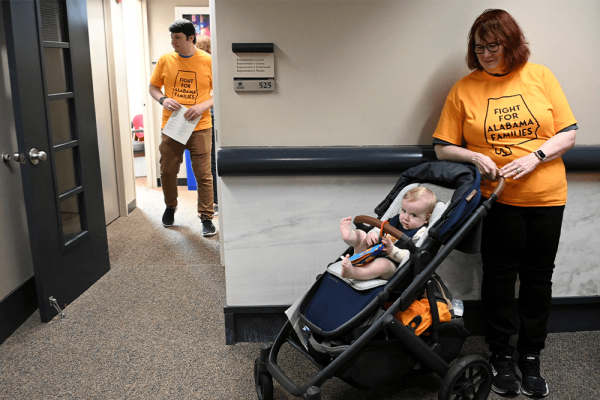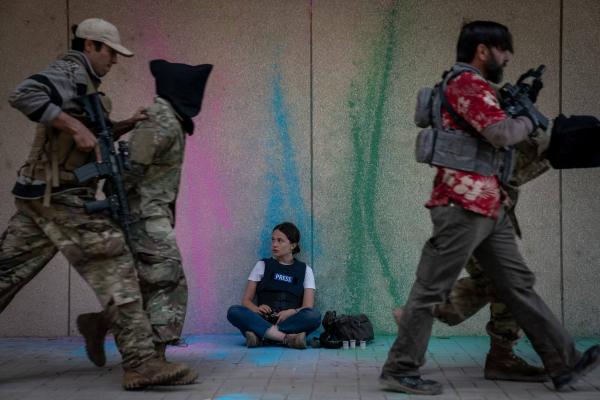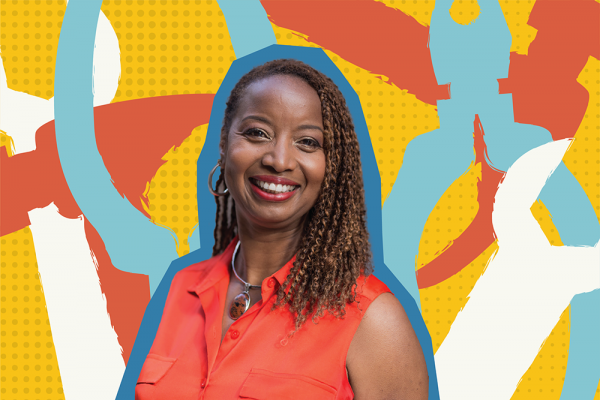United Methodist Church delegates voted on May 1 to remove a ban on ordaining gay clergy and to allow LGBTQ+ weddings.
The waiting room of a fertility clinic was one of the most sacred places Elizabeth Wanczak had ever experienced. Most of the people sitting around her had weathered trauma and grief like hers — stories of repeated miscarriage, medical catastrophe, and what felt like endless longing for a baby that had not yet come. And yet, she said, the presence of these people in the waiting room signaled hope. They had not yet given up.
Only 1 in 4 adults play sports each year, according to a 2015 study from NPR, the Robert Wood Johnson Foundation, and Harvard University’s T.H. Chan School of Public Health. This is despite nearly three in four respondents reporting playing as kids, and a majority of adults saying sports improved their mental and physical health ... Ashley Lynn Hengst sees opportunities for the church to help decrease those disparities and build space for more people of all ages to play sports. Hengst serves in pastoral care at All Saints Church in Pasadena, Calif., after a decade working for the Y in youth development.
Eco-chaplaincy, unlike other forms of chaplaincy, is more deeply grounded in humanity’s relationship with nature than a particular religion.
When I say “Christian unity,” what I mean isn’t “Christians should all just agree” or even “Christians should ignore our real differences in doctrine and tradition.” Instead, what I mean by “Christian unity” is that when we center our shared identity in Christ — notwithstanding our differences — we can generate trust and build relationships that bear real fruit, increasing cooperation within the church to address challenges in the world. And I say this knowing that there are often many good reasons why Christians are not unified, including differing views on issues that cut to the heart of our faith, such as our interpretation of scripture, what we believe about the role of baptism, and vastly different governance structures, as well as differing views around contentious issues such as abortion and sexuality. But Christian unity is still worth pursuing because it ultimately strengthens our collective witness, advancing the love of God and work of justice.
Especially for those churches who imagine ourselves to be a mediating middle path in a country where every issue has become sharply partisan, Civil War illustrates that objectivity ends where the suffering of vulnerable people begins.
Brenda Salter McNeil is an ordained minister in the Evangelical Covenant Church, associate professor of reconciliation studies at Seattle Pacific University, and the author of multiple books on the topic of racial reconciliation. McNeil is acutely aware of critical attitudes toward racial reconciliation and is seeking to emphasize the importance of reparations and intersectionality in her new book, Empowered to Repair. I sat down with McNeil to talk about reconciliation, Obama, and Black support for former president Donald J. Trump.
Standing hand in hand with my fellow classmates at St. Lawrence Catholic Church and School in North Miami Beach, Fla., I couldn’t help but notice how sweaty my hands were. It was 2006, and another 98-degree, humid day in my hometown was upon us. The old church’s air conditioner wasn’t very effective, and I remember I had a feeling I just couldn’t shake — even at the young age of 9: I felt as though something was deeply wrong with me.
I was raised in a primarily Caribbean Catholic tradition, where my family and community emphasized that adhering to the strict rules of the church was what made you a good person. Every morning, my dad would rush me and my sister out the door to school. We would line up with our classes and recite prayers before entering the building, no matter how hot it was outside. During the day, I took religion classes and memorized scriptures my teachers required me to recite at church twice a week. I hated it all.
Christians have long been curious about the Jewish custom of Passover. Passover, a major Jewish holiday that remembers the Israelites’ escape from slavery in Egypt, is an integral part of the events of Christian Holy Week, with the gospels recounting how the meal known as the Last Supper happened around the beginning of Passover that year, right before Jesus was crucified.
The gospel writers were not fixated on Mary’s sexual history; it’s the institutional church that objectified her — casting her as a perpetual virgin, elevating her sexual experience (or lack thereof) to be the most important thing about her









